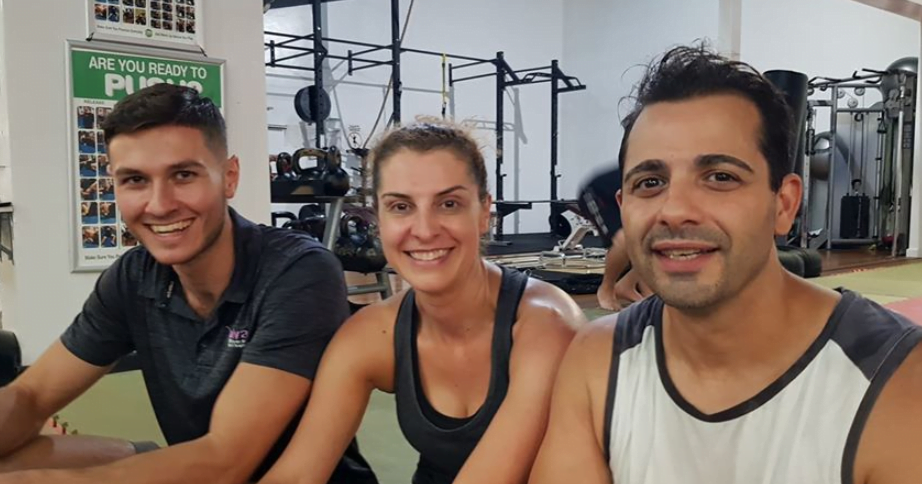How to want to train
We all WANT to want to train, but can often find it hard to actually want to train. It is easy to say “yep, tomorrow is the day I am going to turn my life around for the better” but it is very much harder to put those words into action. The reason some of us are more motivated to train while others are not can be difficult to deduce. Some people believe that it is purely a character trait; those that are more dedicated by character will be more likely to participate in physical activity. Others believe that there are physiological differences between the way individuals respond to training that increases or decreases the likelihood that said person will continue to train in the future. Both of those explanations actually do hold some degree of truth. People higher in trait conscientiousness are more likely to act with respect to the future and thus consider training more valuable in the present than someone low in conscientiousness. It is also true that we do respond differently to exercise, some people release far more dopamine after a hard training session than others. But, the degree to which we release dopamine through training is not determined through our hard wiring but, largely through how we have oriented ourselves in the world. I believe what makes us want to train is our calibration within the world and the degree to which we associate training with our broader goals. I will justify this by explaining the way in which our body monitors our actions and emotions and thus regulates our behaviour. This understanding will grant you the ability to hijack these systems and use them to your advantage.
All of our actions and culminated behaviours are moderated by our incentive reward systems – our dopaminergic reward systems. These systems work in the background, where we have no conscious control over them. One cannot demand their body to release dopamine. It takes physical action to release dopamine. More specifically, physical action measured with respect to a valued goal.
The process in which they operate is; (1) they recognise a valued goal – a more desirable future – that can be used as a target to aim at; (2) they carefully monitor each of your actions with respect to said goal; (3) they reward, with dopamine, those actions that are seen to take you closer to that goal and punish those actions that take you further from that goal.
The goals to which they orient you towards are ranked hierarchically, with finer immediate motivations nested inside broader long-term goals. Generally speaking, all of your immediate motivations have some direct relation to your longer-term goals. For example, one’s immediate motivation to wake up at 6am might be nested inside of the motivation to go to work, which is nested inside of the motivation to make money, which is nested inside of the motivation to provide for ones family, which is nested inside of the goal to be a good person. Thus, your broader goals largely determine your immediate motivations. In this sense, it is extremely important to work out what it means for you “to be a good person”, and to then workout the micro-routines, or sub-habits that constitute that state of being.
If you want your body to respond positively to training, you need it to associate that training with forward progression towards a meaningful goal. You must articulate your goal and determine that training is an essential element of said goal. No goal means no positive emotion. Do not get this goal – the goal of say, “being a better person” – messed up with a poorly formulated, superficial idea of what would be nice: “I want to lose 5kg”. What does that even mean? Your body has no idea. The idea of losing 5kg does not formulate a strong enough vision in your mind for your reward systems to align themselves with – unless you are super conscientious. The goal need not even be a “SMART” goal: Specific, Measurable, Achievable, Realistic & Time bound. The goal needs to, more or less, be a vision of what you want your future to be. The more detailed and more nuanced the vision/goal is, the greater your reward systems will be able to align with that future thus, the more positive emotion you feel as you progress towards that goal and the more negative emotion you feel when move away from that goal.
The way I recommend most of my clients to apply this is as follows:
- List 5 to 10 positive attributes or behaviours that make you stronger and/or your life better.
- Set a timer for 15-20 minutes and start to write about how your life could look in 3-5 years from now if you were to capitalize on those positive behaviours.
- Repeat steps 1 & 2 but for negative attributes and behaviours.
Note: Try to allow your thoughts to flow freely and notice how each positive improvement in one domain can simultaneously roll over to positive improvement in another domain. Try not to limit yourself to just writing about training, but how your training affects your relationships and how your relationships affect your work, etc. Do not consider grammar to heavily at this point, allow your writing to be as natural and uninhibited as possible.
Using this framework, you will create for yourself two potential and highly possible futures that you are inexorably heading towards. These futures will represent a realistic heaven and a just as realistic hell that you must orient yourself with respect to. When you formulate your own ideas of your own potential heaven and hell in a sophisticated manner, you present your motivational systems with the greater knowledge it requires to monitor your behaviour in an appropriate fashion. In this sense, every time you act, your actions will be rewarded on the basis of how closely they align with taking you towards heaven and away from hell. Over time, all those things you found difficult to do will become more bearable, they will be rewarded positively and you might even find them enjoyable.
~ Coach Salvaterra



